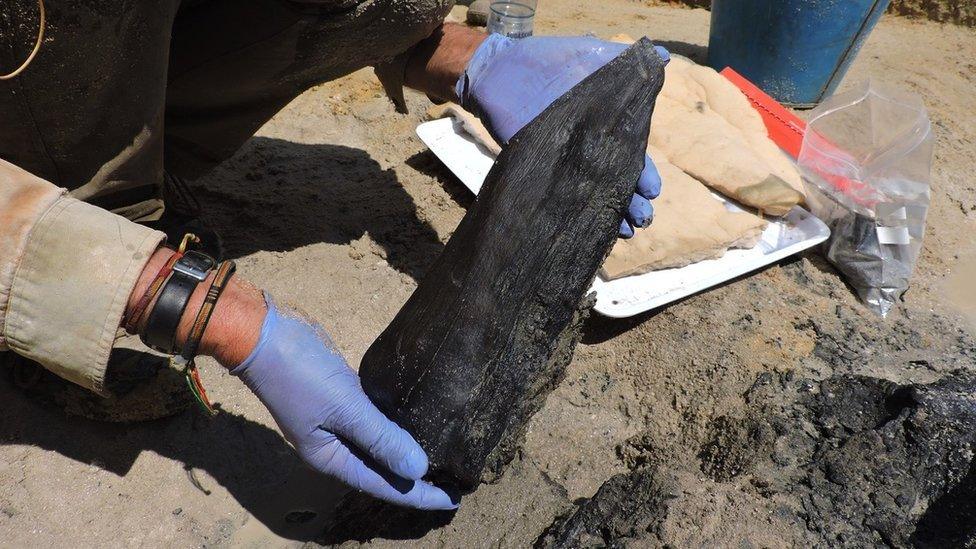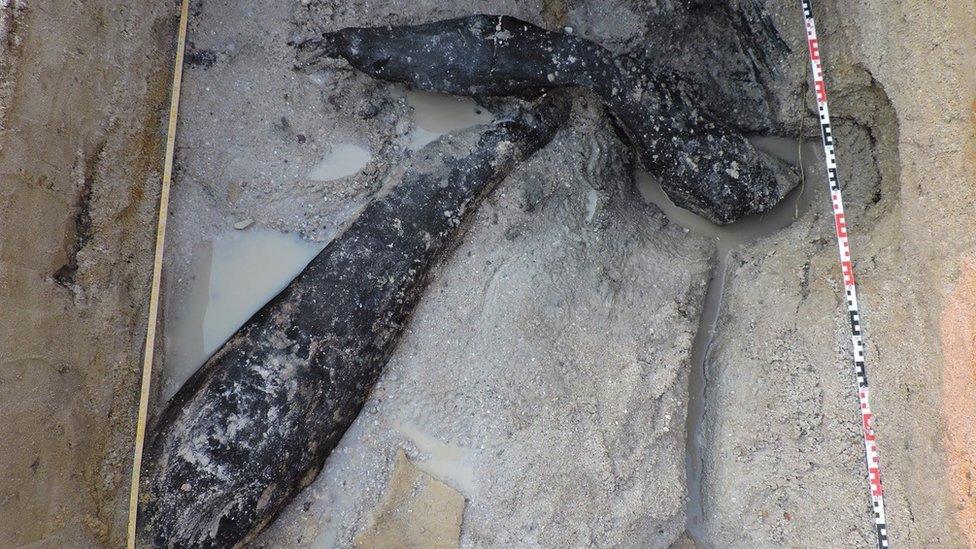Half a million year old wooden structure found in Zambia
- Published
- comments

Archaeologists have discovered a well-preserved ancient wooden structure which is nearly nearly half a million years old.
The wood dates back to before the time of Homo Sapiens - the species to which all modern humans belong - and is believed to be the oldest wooden structure ever found in the world.
Experts found marks on the wood which shows that early humans had used sharp stone tools to shape and join together two large logs to make a structure.
They say the construction shows that our ancestors may have been more advanced than we previously thought and could change our understanding of stone age life.
What did experts find?

The wooden structure was discovered by chance in 2019, while archaeologists were excavating a site located on the banks of the Kalambo River in the southern African country of Zambia.
Experts say the structure may have formed part of a walkway or platform for people who lived along the river.
Ancient discoveries of wood are rare because it tends to rot leaving behind little trace.
A collection of wooden tools, including a wedge and a digging stick, were also discovered at the site.
Our ancestors were already known to use wood at this time, but only for reasons such as starting a fire or hunting - and experts say this find is the earliest evidence from anywhere in the world of the deliberate shaping of logs to fit together for other purposes.

The ancient wood was found on the banks of the Kalambo River in Zambia
Researchers from the University of Liverpool and Aberystwyth University used a new method called luminescence dating to date the wood, which is able to work out age by measuring the last time minerals were exposed to sunlight.
They discovered that the structure was much older than they had expected, dating back at least 476,000 years.
The earliest evidence of Homo sapiens is from around 300,000 years ago.
Professor Larry Barham from the University of Liverpool said he was surprised by the discovery.
He explained: "This find has changed how I think about our early ancestors.
"They used their intelligence, imagination, and skills to create something they'd never seen before, something that had never previously existed.
"These folks were more like us than we thought," he added.
